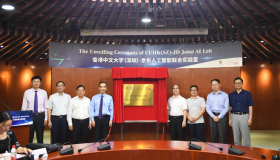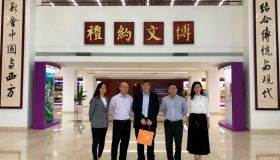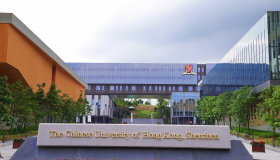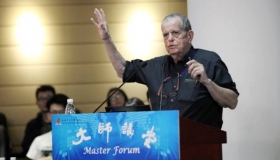2018 Chinese Academy of Engineering Academician Forum Convenes at CUHK-Shenzhen
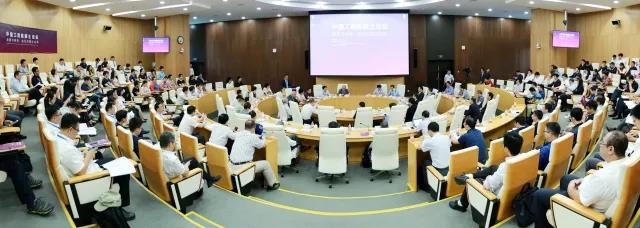
On May 10th, the 2018 Chinese Academy of Engineering Academician Forum “Intelligence and Networks: Frontier Issues and Applications”, sponsored by the Chinese Academy of Engineering, organized by the Chinese University of Hong Kong, Shenzhen and Shenzhen Cyberspace Laboratory, and co-organized by the Galaxy Group, was held at The Chinese University of Hong Kong, Shenzhen. Artificial intelligence has become a new focus of international competition and a new engine for economic development. It will have a huge impact on the future development of the country. The current Internet era also provides a catalyst for the large-scale application of artificial intelligence. The forum was held to promote the research and application of artificial intelligence in the Internet era.

The guests present at the forum included Gao Zimin, Deputy Mayor of Shenzhen Municipal People's Government, Zhang Yong, Longgang District Party Secretary, Dai Bin, Head of Longgang District, Xu Yangsheng, President of CUHK-Shenzhen and Academician of Chinese Academy of Engineering, Gao Wen, Director of Shenzhen Cyberspace Laboratory, Academicians of the Chinese Academy of Engineering (Liu Jie, Wu Jiangxing, Yu Quan, Chen Jie, Liu Zejin, Lu Jun, Tan Jiubin and Wang Shafei), Xiong Youlun, Academician of the Chinese Academy of Sciences, Prof. Luo Zhiquan, Fellow of Royal Canadian Academy of Sciences, Prof. Zhu Shiping, and Zhu Qiang, Chairman of International Joint Conferences on Artificial Intelligence Organization. In addition, many researchers from Baidu, Huawei, Tencent and other industries, as well as teachers from major domestic universities also participated in the forum.
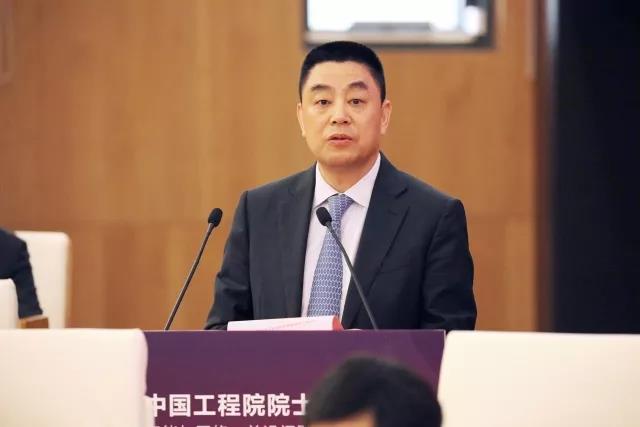
Speech by Gao Ziming, Deputy Mayor of Shenzhen
In today's era, intelligence goes deep into every corner of life. The camera can recognize human faces and the microphone can recognize dialects. As the deputy mayor of Gao Zimin said in his speech at the opening ceremony of the forum, “Artificial intelligence is the most important technical and social changes we face, which is the second technological & social patterns since the birth of the Internet. The development of the Internet affects all aspects of life, and artificial intelligence will also change social and technological production." But what is in our mind when it comes to intelligence? Prof. Xu Yangsheng, President of the Chinese University of Hong Kong, Shenzhen and Academician of the Chinese Academy of Engineering, gave his thoughts in his speech: “Intelligence is realized through networks. It can be said that if there is no network, no intelligence will be realized. The two are closely related. In fact, the network plays a big role in intelligence, determining the degree of intelligence. The definition of a network is relatively general. WiFi, 4G and deep neural network are all networks; photos taken by us form a large network; the cars that you are driving together are a network; the gathering of all of you here is also a kind of network. "
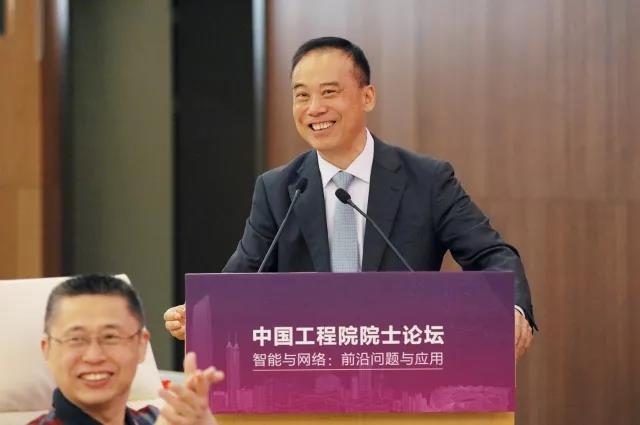
Speech by Professor Xu Yangsheng, President of CUHK-Shenzhen & Academician of Chinese Academy of Engineering
How can these networks be structured and how can they be used to generate valuable intelligence? In addition to what we can feel in everyday life, what are the major implications of networks applied in the important industrial, IT, and military areas in our country? What are the tricky issues that need to be solved? These are long-term issues that need to be discussed in this forum and even in the future study of artificial intelligence.
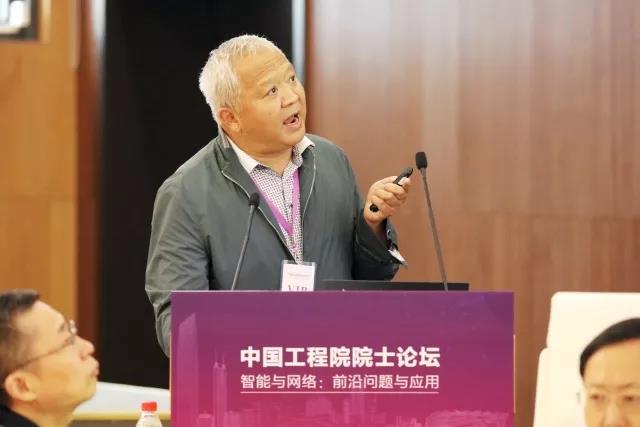
Keynote Speech by Prof. Wu Jiangxing, Academician of the Chinese Academy of Engineering
The forum was hosted by Academician Liu Jie. Academician Jiang has delivered a keynote speech of "Big Data Test Field and Data Science" to introduce the data science and big data test field from six aspects including the data-driven research and innovation, the connotation of data science, the difference between data science and big data, the construction needs, planning, and goals of big data test fields. Then, Academician Chen Jie made a report titled "Intelligent Command Decision-making and Control in Land-based Moving Objects Coordination", reviewing the development status of related fields at home and abroad, and elaborating on the scientific issues and key technical solutions such as "Intelligent Command Decision Making, Collaborative Fault Detection, and Manned/Unmanned Shared Control in Land Motion Synergy".
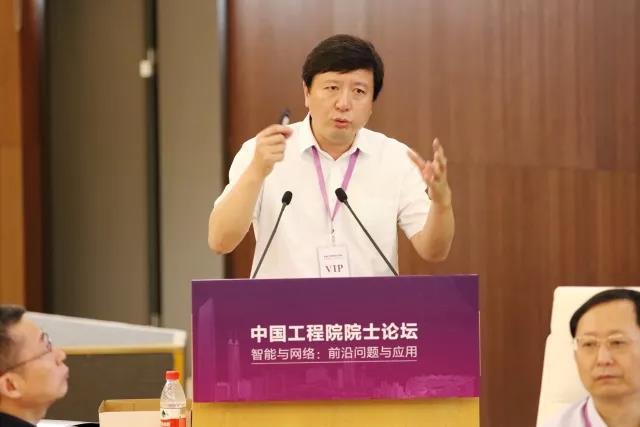
Keynote speech by Prof. Chen Jie, Academician of the Chinese Academy of Engineering and Vice President of Beijing Institute of Technology
Academician Wang Shafei then made a report on the theme of "Artificial Intelligence and Electromagnetic Spectrum Warfare." He introduced the concept, evolution, system architecture of the electromagnetic spectrum warfare, and thoughts on some of these key technical issues. He pointed out that in the future, the electronic war will evolve to the electromagnetic spectrum and electromagnetic space operations. He believes that artificial intelligence technology will play an important role throughout this process. Afterward, Prof. Yang Qiang made a report on the topic of “Recent Progress in Transferring Learning” and introduced the objectives and original intentions of the transfer, which aims to use existing data and models to improve the effectiveness of learning in a new field. It also introduced and discussed the most advanced technological improvement in transferring learning.
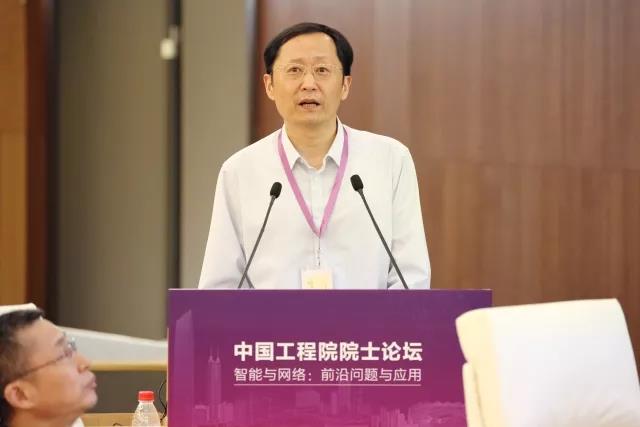
Speech by Academician Wang Shafei of the Chinese Academy of Engineering
This forum revolves around the two themes of “intelligence and networks” and explores the opportunities and challenges faced by artificial intelligence and the Internet era from multiple perspectives. From the perspective of medium- and long-term strategies, it conducts discussions on relevant frontier issues and leads related scientific & technological research and development. At the same time, it provides innovative ideas for industrialization.
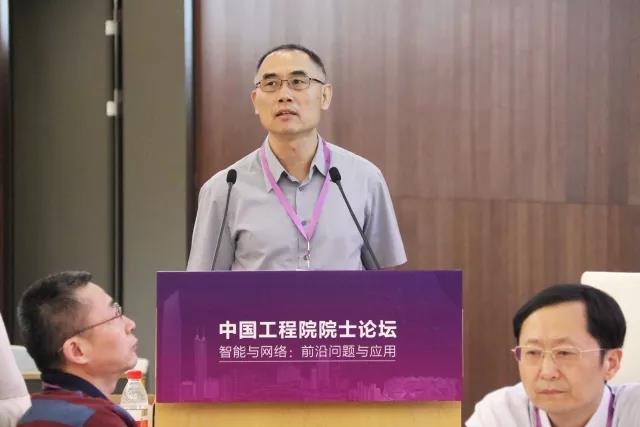
Speech by Yang Qiang, IJCAI Chairman

